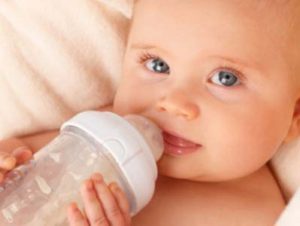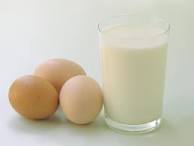Artificial feeding in infants in the form of bottle-feeding of infants – In spite of the widespread recognition that breastfeeding is the best for babies, artificial feeding especially in the form of bottle-feeding has somehow come to stay.
Artificial feeding in infants
The mothers who opt for it as a matter of choice may take pride in saying – it is simple, convenient and a sort of boon to their personal freedom.
That it is expensive is hardly realized, not to speak of the several hazards it poses to the infant. An idea about the stress and strain that it can cause can be had from this example.
Imagine a four-month-old baby needing 2.5 kg of milk powder every month and even more as he grows a little older. Then there is all the equipment, including bottles and teats, which are also expensive.
Artificial feeding in infants may spell health hazards
The lack of knowledge regarding proper feeding techniques, poor socio-economic status, irrational beliefs, superstitions and customs, and preoccupation of the mother in other things figure prominently among the factors that make the bottle-feeding hazardous to the baby.
Overdilution of the formula is the most common problem which results in underfeeding and eventually in multiple nutritional deficiencies in the infant.
Why do mothers overdilute the milk, be it mammal’s or just the powder?
The reasons are multiple. In their own words “Pure cow’s or buffalo’s milk is too concentrated for the baby”, “Milk powders are too strong to be given as such”, “Pure or low dilution milk causes tummy upset” and the like.
An unsaid cause is – mothers from the weaker section are keen to “ape” those from the elite class. They must follow the fashion of employing the tinned milk powder, even though this can hardly be afforded by them.
The result is a highly diluted formula – apparently insufficient liquid feed – which contains very little solute and, thus, very little for adequate growth of the baby.
Superadded infections, especially acute gastroenteritis, as a result of dirt from poor hygiene and untidy hands as also feeding bottle and other utensils, constitute another danger of bottle-feeding.
Acute gastroenteritis may per se prove a “killer”. In others, its recurrent attacks adversely affect the nutritional status of the baby, often leading to gross malnutrition in one shape or the other.
Iron and vitamin deficiencies, especially those of C and D, are common in artificially-fed infants unless they receive supplements of these constituents at the appropriate time.
Prolonged use of skimmed milk may cause vitamins A and D deficiency. Likewise, if a sweetened condensed milk is given for a long time, protein-energy malnutrition results.
Yet, if you feel you have to give your baby artificial feeding, either on doctor’s advice or on your own, the choice is yours. You must exercise greater vigilance and extra care in carrying it out.
RELATED TOPICS
Personal trainer certification
Personal injury lawyers in Phoenix
Online medical assistant schools

